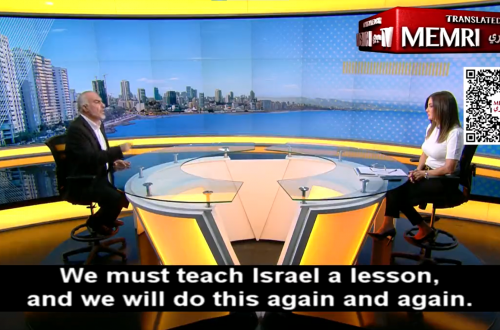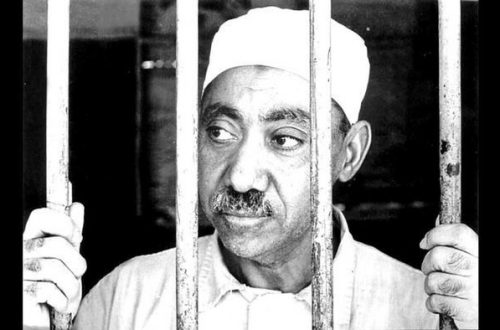By Muncii
Most of the HP community will be familiar with the recent victory for Head Teacher Katherine Birbalsingh and the Michaela School in Brent, London, with the Judge ruling that it is not unlawful for the school to ban prayer rooms.
The reasons for the school not having prayer rooms – for any faith, not just Muslims – are practical, educational and moral. The school’s ethos is one of collectivity, sharing, and community, with no one group of pupils given priority over another. Communication between children is emphasised, across race, ethnic, and religious boundaries, with no group given special privileges.
The secondary school (11-18) has over 700 pupils, and the building isn’t huge – it has only a small outside yard, no fields or trees. Every bit of space is precious. It’s an inner city school, with pupils from a wide range of ethnic minorities. There are very few white children.
It’s set up as a ‘free school’ , similar to the US Charter schools, so it’s semi-independent from the local authority in which is is located – but it can’t self select its own pupils, it has to take those sent to it by the LA.
Right from the start, the school has attracted a huge amount of hostility, and Birbalsingh had to fight hard to set it up in the first place, in 2011. Opposition came, and continues to pour forth, from teachers’ unions, from government and local authority educational ‘experts’ and from teachers themselves. There are many reasons behind these attacks, which got so bad last year during the Muslim prayer room case, that Birbalsingh and her teachers were subjected to racial abuse, poisonous emails and even death threats. The school had to be evacuated when there was a bomb threat, and police had to be called.
For a more detailed discussion of the school’s ethos and the Muslim Prayer room case, I recommend watching a conversation between Peter Boghossian (on his channel) and KB, which was made just before the case was concluded to the school’s satisfaction.
Boghossian and a colleague were given a tour of the school by two pupils, visiting classrooms and taking part in the school’s ‘family lunch’, where the pupils serve each other and clear up after the meal, and where they are given a topic to discuss – Boghossian joined in a discussion about ‘when it is acceptable to lie’
He was very impressed, all round.
Katherine Birbalisingh is inspirational and passionately committed to education (he can hardly get a word in) but Boghossian finds it hard to understand why the school attracts so much opposition, especially when it gets nationally outstanding educational outcomes, year on year.
Birbalsingh gives many explanations, including her belief that she attracts particular hostility because she is a black woman who won’t pander to spurious racial divisions.
In particular, what annoys the educational elite and teacher unions, is that the school’s approach to teaching and learning is ‘traditional’ rather than ‘progressive’. Politeness and good behaviour are essential for setting a good school climate in which pupils are encouraged to value learning and respect each other and the teachers. There are clear rules and boundaries, for example quiet corridors and no mobile phones in class. Pupils sit in rows facing the teacher, rather than around tables. And so on.
KB criticises the ideology of ‘child centred learning’ – in which the child leads the teacher, rather than the other way round, and which promotes the importance of children being ‘free’ to take or reject learning as they see fit – which has dominated the English education system for many years now, and which is especially influential on teacher-training courses. She argues this actively works against the conditions for real learning to take place. Children won’t learn if they are in a ‘free for all’ environment.
If schools aren’t there to give pupils the knowledge, skills, and dispositions, which will help them become successful, well informed, independent and rounded adults, where else will they get them from ? Not from mobile phones or TV and sadly probably not even from parents.
The school’s approach to teaching and learning sounds, to me, admirable and impressive, and the evidence – academic results – bear this out. So, Boghossian asks, if the evidence is there, and the methods can be replicated, why the continued hostility ?
I think this goes to a fundamental disagreement about what education, and schools, should actually be for. The traditional understanding has been that schools are for learning useful stuff, which teachers are there to impart to young minds. But the progressives dismiss this entirely – indeed, I’ve heard this equated to child abuse.
For the progressive, and for much of the educational elite, and the unions, schools are a primary vehicle for promoting ‘social justice’ and redressing economic and social disadvantages.
So the curriculum, and teaching methods, must be moved away from focussing on traditional subjects such as algebra, and must now encompass critical race theory, discrimination, climate change, gender woo etc. These topics must be given equal weight, if not more, than being good at English.
Discipline becomes a dirty word as it is seen to impede the pupil’s right to ‘self expression’ and ‘authenticity’.
Teaching methods must be ‘facilitative’ and learning should be ‘fun’. Repetition and rote learning – which Michaela’s teachers call ‘drill’, and which they use – are anathema to the progressives.
I remember attending a ‘workshop’ lead by an ‘educational expert’ from County, who came to give a talk at the village primary school where I was a governor. She certainly stressed the ‘fun’ , but when I pointed out that perhaps not all learning is, or can be, ‘fun’, and that sometimes it requires hard work and repetition, her response was ‘well I suppose you’d want to bring back the cane, then ?’.
Progressives don’t place a value on a school’s educational outcomes, and they dismiss school league tables, which they argue are divisive and discriminatory. Competition between pupils, and between schools themselves, is a VERY BAD THING.
It’s many years since I completed a Masters in Educational Research and Evaluation programme, but all these progressive tropes were well established in the course curriculum even then.
During her discussion with Peter Boghossian, Katherine Birbalsingh does give examples of how her approach to teaching and learning has had some positive spin-offs – the school gets many requests from interested visitors who would like to use some of her methods – but I’d guess it will be difficult if not impossible to shift the stranglehold of progressive education.
Worse, I’ve just read that the Muslim mother who brought the prayer room case against Michaela is considering instructing her legal team to bring further complaints against the school.
This vexatious litigation will continue, and if its purpose is to undermine the school and even force it to close, it will be cheered on by much of the teaching fraternity.
Note from Mirax : There is also a fair bit of muslim community organisation and pressure against Birbalsingh’s prayer policy. While the Church of England has rather shockingly come down on the side of Birbalsingh, muslim leaders have blasted the court decision. The London Central Mosque Trust and Islamic Cultural Centre which helped the parent (who launched the lawsuit) ‘liase’ with Michaela School in 2023 also expressed dismay at the court ruling. Note the language of this statement :
London Central Mosque explained to the head teacher that Muslims need to pray in the allotted time of each prayer and there would have to be a solution to allow the kids to pray. In so far as the praying later is concerned, the London Central Mosque explained that, in the summer, the time between Dhur (noon prayer) and Asr (afternoon prayer) is further apart so the earlier prayer (in this case the dhur one) can be done later, whereby the noon prayer would be delayed to its final prescribed time and the afternoon prayer advanced and performed at the beginning of its time. This is an accepted practice called Al jamm al suri. We made it clear that in the winter it would NOT be possible to pray later as times are much shorter.
The tone is rather dictatorial and is less than truthful. Millions of muslims living even in muslim majority nations manage work and study without sticking stringently to muslim prayer times because the religion actually allows accommodation in the form of make up prayers. Others such as the mysterious Muslim Vote collective repeat this falsehood that one MUST pray at the fixed times.
https://twitter.com/themuslimvoteuk/status/1780339422493360578





